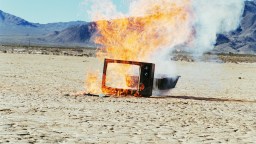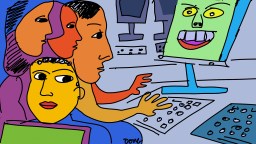television
You know Steve-O. Now meet Steve Glover, as the professional stuntman talks to us about pain, insecurity, and never finding contentment.
▸
7 min
—
with
A 50-year study reveals changing values children learned from pop culture.
The pieces don’t represent an army, they stand in for the Western social order.
Join multiple Tony and Emmy Award-winning actress Judith Light live on Big Think at 2 pm ET on Monday.
▸
with
If you’re interested in reinvention and adaptability, turns out Italian cooking is an instruction manual for life.
▸
with
Yet, the real-world roles and expectations of fathers have changed in recent years.
Join New York Times best-selling author Maria Konnikova as she leads this special edition of Big Think Live.
▸
with
These people had no access to magazines and, generally, no access to the internet.
It’s the first American news channel to focus on African-American experiences.
CuriosityStream is a non-fiction streaming platform of over 2,000 documentary features and series that open up every facet of our planet, our times and our universe.
A new study has bad news for those who binge watch TV.
TV’s shared cultural “now” moments embody the intersection of time and tech.
The artifact will be opened on Sunday, for the first time in millennia, at an undisclosed location in Egypt.
A new report says there’s not as much evidence of physical harm as you might think.
Journalism got a big wake up call in 2016. Can we be optimistic about the future of media?
▸
5 min
—
with
The contestants would try to reach the end of the world, as they understand it.
Creators of the mega-hit tv show “Game of Thrones” face growing controversy over their next show.
The stories in Shakespeare’s plays and ‘Game of Thrones’ are often bloody, but which are ultimately more violent?
As the Internet takes over from broadcast television, we find ourselves in a new psychological ecosystem—and people’s ability or failure to adapt explains the last two years of American politics.
▸
9 min
—
with
“Shut up and take my money” isn’t just a meme anymore, it’s the way people are increasingly choosing to access art, news, and culture.
Is the technology of the future more radical than the technology of the past? Alison Gopnik provides some historical perspective.
▸
5 min
—
with





















